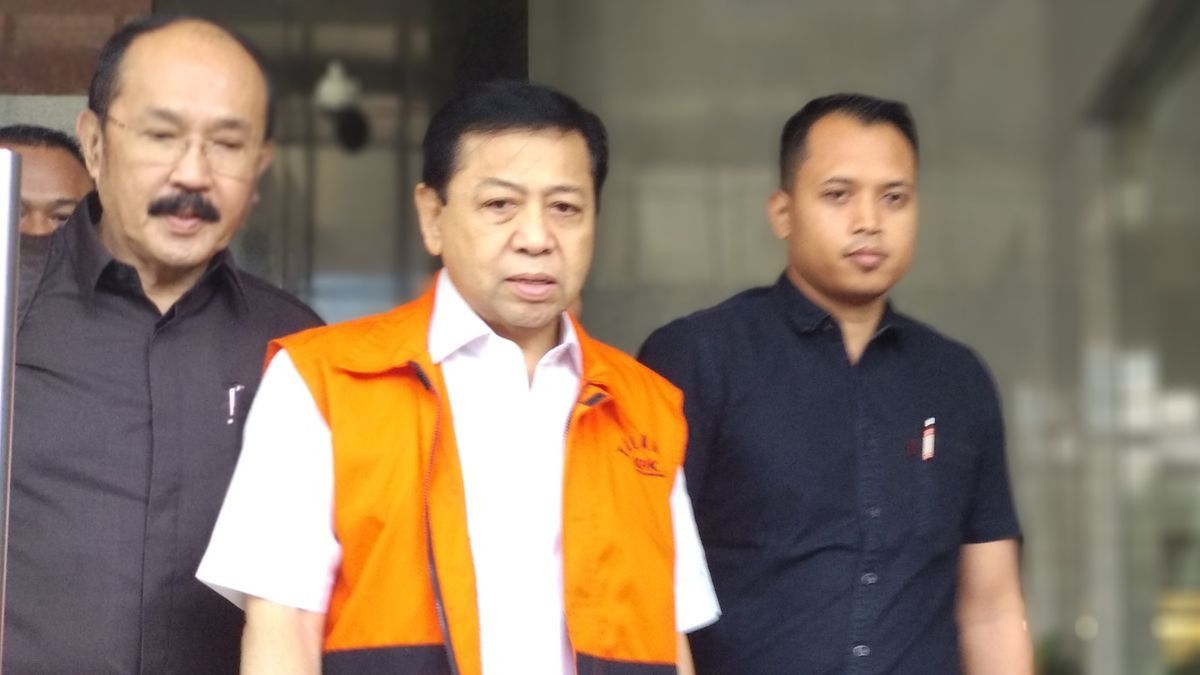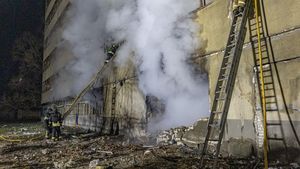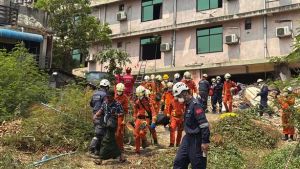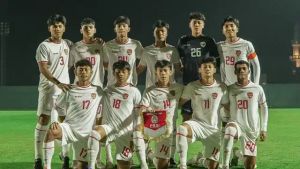JAKARTA - Corruption is an extraordinary crime that has an impact on state revenue. It's just that the sentences that are often handed down to white-collar criminals are always lighter. At least, the average sentences handed down are only around 2 years and seven months and are no heavier than the charges.
Indonesia Corruption Watch (ICW) noted that 1,019 cases of corruption were tried at various court levels. 1,125 of the defendants received criminal penalties and light fines, not even comparable to what they had done.
"Referring to Article 10 of the Criminal Code which states the main crimes (imprisonment and fines), ICW findings that the average prison sentence for corruptors only touches 2 years 7 months. Meanwhile, the fine is Rp. 116,483,509,055, "said ICW researcher Kurnia Ramadhana, as quoted by VOI from his written statement, Monday, April 20.
ICW also found that the amount of compensation paid to corruptors by the judges was also insufficient to compensate the state for losses. Currently the replacement money from the thieves is only Rp. 748,163,509,055, while the state loss due to corruption is Rp. 12,002,548,977,762.
Not only light sentences, the trend of free corruptor convicts has also increased sharply. As a comparison, in the previous year, the number of free corruptor defendants was not up to 26 people, but in 2019, those who were free reached 41 people. Some of them were even sentenced to release.
Leniency, is not a natural thing and just happens. Because, not a few sentences were sluggish from the initial demands of the prosecutors. It is not impossible that there is a transactional process that takes place in achieving the sentence. So, the public needs to monitor this kind of verdict.
In 2019, ICW also noted that two of the most controversial decisions were ruled by the court. The first is the free sentence against the defendant in the case of the BLBI Settlement Certificate (SKL), Syafruddin Arsyad Tumenggung at the cassation level.
"The cassation panel is of the view that Tumenggung's action in issuing the SKL was not a crime so that a loose sentence should be imposed," said Kurnia.
Circumcision sentence may be what happened if you look at the case. This is because the sentence that has been handed down for Syafruddin is 12 years in prison and has been increased to 15 years when he filed an appeal.
"Of course, it becomes an oddity in itself if the cassation decision releases the defendant from legal traps," said this researcher, adding that there is a fact that one of the cassation boards in charge of this case is subject to ethical sanctions by the Supreme Court Supervisory Body.
"Less than 10 percent of the asset value can be returned to the state treasury,"
ICW researcher Kurnia Ramadhana
Then the second defendant Kurnia mentioned was the former Director of PT PLN Persero, Sofyan Basir. Although Sofyan's involvement in the bribery case that ensnared former DPR RI member Eni Maulani Saragih and former Secretary General of the Golkar Party as well as Social Minister Idrus Marham was very clear, he was instead sentenced to be acquitted.
So that reflecting on the things that have been conveyed, ICW then requested that the Supreme Court be able to highlight the trend of low verdicts and prepare criminal guidelines immediately.
Furthermore, law enforcers, both the prosecutor's office and the KPK, should make use of the prosecution guidelines. Not only that, they must always use the Anti-Money Laundering Law when accusing perpetrators of corruption.
"This is because both juridically and in reality, the crime of corruption is often directly connected to the crime of money laundering. This will also provide a maximum deterrent effect on perpetrators of corruption, "he said.
Meanwhile, in connection with the rampant reconsideration efforts (PK) filed by corrupt convicts, ICW said that the Supreme Court should be more selective in assessing the feasibility of evidence. Do not let this submission become an opportunity for the corruptors to escape their punishment.
The Corruption Eradication Commission (KPK) has also not yet spoken about ICW's findings. This institution encourages the Supreme Court (MA) to immediately issue criminal guidelines as a standard for judges in deciding corruption cases.
"The KPK hopes that the Supreme Court can also issue criminal guidelines as a standard for judges in deciding corruption cases," said Acting KPK spokesman for prosecution Ali Fikri to reporters.
Meanwhile, the KPK is currently drafting prosecution guidelines. So that later, the prosecution of the defendant can be more objective by considering things that alleviate and burdens the sentence.
According to Ali, this guideline will be made for all categories of corruption crimes as stated in the Corruption Act and Money Laundering (TPPU) because it is in line with the KPK priorities in the era of Firli Bahuri, et al, which put forward case building on cases that have an impact on the national economy.
In addition, in the future, anti-graft institutions will optimize claims with Articles of Corruption and Articles of TPPU for the return of state assets or asset recovery and the return of state losses.
This note was also responded to by the Supreme Court (MA) through its spokesman, Andi Samsan Nganro. He said ICW's recommendations and KPK's request that his agency issue criminal guidelines had been discussed for a long time.

KPK Building (Syamsul Ma'arif / VOI)
In fact, the Supreme Court has formed a Working Group (Pokja) for the Preparation of Guidelines for Criminalization of Corruption Cases based on the Decree of the Chairman of the Supreme Court of the Republic of Indonesia Number 189 / KMA / SK / IX / 2018.
"This Pokja is supported by the MaPPI FHUI research team. The Pokja and the FHUI MaPPI Team have held several meetings, including meetings with related externals such as the Attorney General's Office, Bappenas, Kemenkumham and the KPK," Andi told reporters.
According to him, the discussion of this Working Group has reached the conclusion and finalization of the draft guidelines for the prevention of corruption. There are several aspects that are considered, namely the aspect of punishment, including the circumstances that are burdensome and which relieve the defendant, as well as the role and extent of the defendant's guilt.
"It is hoped that the Draft Criminal Guidelines will be completed this year," concluded Andi.
The English, Chinese, Japanese, Arabic, and French versions are automatically generated by the AI. So there may still be inaccuracies in translating, please always see Indonesian as our main language. (system supported by DigitalSiber.id)











